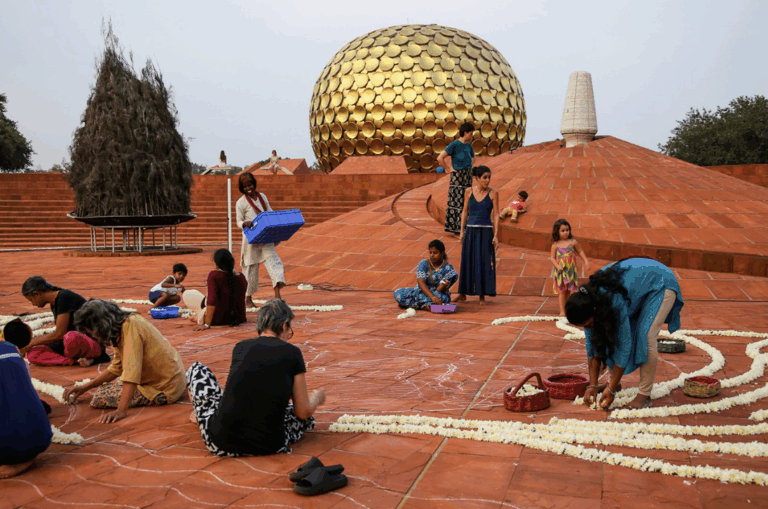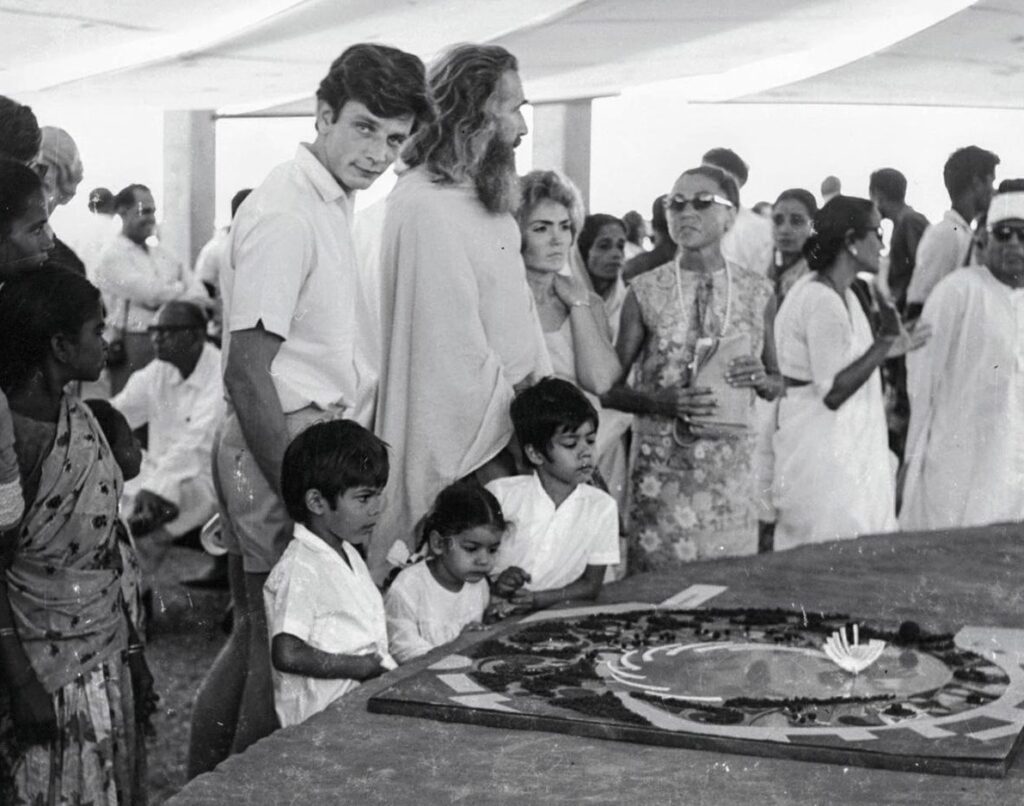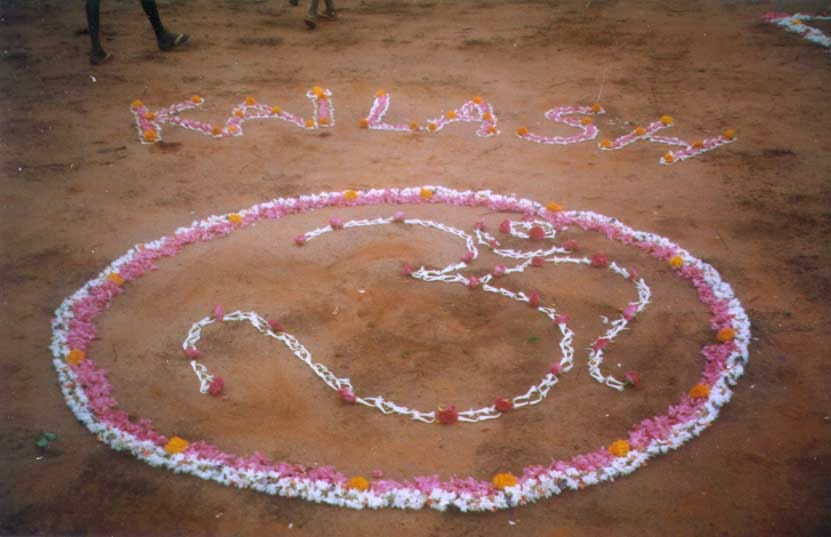Summary – March to September 2025
The aggressive takeover of Auroville – which started almost four years ago after the appointment of a new Governing Board and its Secretary, Dr Jayanti Ravi – continues unabated. Previous issues of Voice of Auroville have covered events through February 2025, a summary of which can be found here: www.auroville.media/crisis.
The period covered in this issue — March to September 2025 — marks the most dramatic transformation in Auroville’s governance since its founding. Supreme Court rulings and Governing Board decisions have fundamentally altered the legal landscape, and risk undermining the integrity of the Auroville Foundation Act itself. Plans for the militarisation of the township, and the threatened destruction and repurposing of Annapurna Farm – some of Auroville’s most productive agricultural land – for an external institutional campus, exemplify these profound changes and threats.
Yet this issue also documents remarkable community resilience. This includes: the successful mobilisation to secure pioneer resident Frederick’s visa renewal; the overwhelming community rejection of illegitimate committees appointed by the Foundation Office; and the growing international support — all of which demonstrate that coordinated community action can achieve results even under challenging circumstances.
Legal Landscape Fundamentally Altered
Auroville’s legal framework went through a critical challenge in 2025, with significant negative impacts for residents. The Supreme Court rulings dismissed two important orders of the Madras High Court and the National Green Tribunal on matters concerning planning, land & development and environmental protection, while the Governing Board revealed plans to further cement its authority by petitioning for amendments to the Auroville Foundation Act of 1988.
Supreme Court rulings legitimise takeover
Two Supreme Court judgments in March 2025 favored the AVFO but contained apparent contradictory elements that left several key legal questions unresolved.
The Supreme Court’s judgments set aside both the National Green Tribunal’s environmental protection orders and the Madras High Court’s ruling that aimed to promote collaboration and consultation between the Governing Board and the Residents’ Assembly in the appointment of the Town Development Council.
The court confined the Residents’ Assembly’s role to “advising” the Governing Board while it simultaneously reaffirmed the Assembly’s statutory right to appoint its own committees, thus indirectly legitimising Residents’ Assembly working groups whose authority had been contested by the AVFO.
While the Supreme Court’s emphasis on the Governing Board’s authority marked a departure from the long standing tradition of collaboration between residents and the Governing Board, the Court’s simultaneous recognition of residents’ rights to create its own committees left the legal framework unclear.
The Supreme Court’s environmental ruling declared that the National Green Tribunal has no jurisdiction and authority over whether environmental clearances were required prior to construction — a common requirement for large scale development projects in India. As a result, the Tribunal’s pause on development (“interim stay”) was lifted, leading to indiscriminate tree cutting and serious ecological degradation of the Auroville environment. The Supreme Court did not rule on whether or not environmental clearances were necessary, only that the Green Tribunal could not decide this issue.
Given that the rulings contained contradictory elements and several related court cases are ongoing, the legal situation remains confusing and unresolved.
Governing Board's intent to change the Act
The minutes of the Governing Board’s 67th meeting, made public nine months after the meeting took place, once again referenced plans to fundamentally alter Auroville’s legal framework without consulting residents or their representatives. The Governing Board signalled its intent to amend the Auroville Foundation Act to “remove ambiguity” and “facilitate strong administration”. If approved by Parliament, these changes could undermine the Act’s carefully crafted protections of the residents’ role in shaping Auroville.
Other ongoing legal challenges have mixed results
Court cases concerning Auroville’s governance continued through the summer months with mixed outcomes.
The residents’ case against the Governing Board’s 2024 Admission and Termination Regulations had its final hearing in the Madras High Court on 8th August 2025. At the time of this publication, a final written verdict is still awaited. For the time being, the court vacated the interim stay, with a contradictory order allowing the Governing Board’s new regulations to take effect while simultaneously recognising the Residents’ Assembly’s prerogatives to “allow the admission or cause the termination of residents” under Section 19 of the Auroville Foundation Act.
While three other cases relating to the Working Committee remain pending, with potential implications for the functioning of the Residents’ Assembly, a new case regarding the ‘Residence Criteria’ created under the disputed 2024 Admission and Termination Regulations has been admitted but hearings are yet to be scheduled.
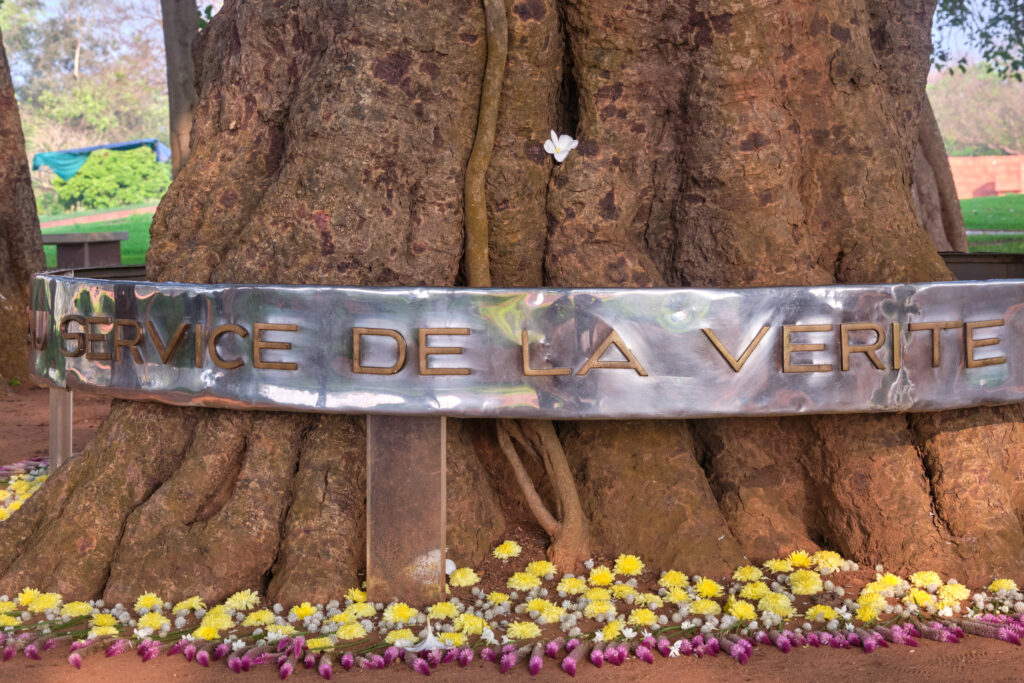

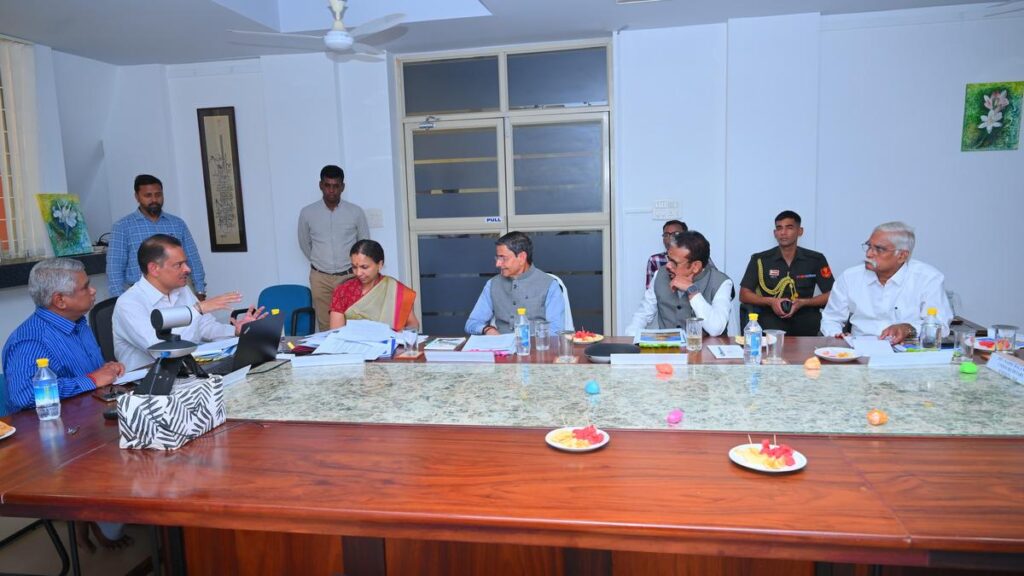
Escalating Control Over Community Life
The AVFO has tightened its grip on residents’ lives — controlling housing, new resident admissions, people’s movements and communications, while targeting longtime residents and elected representatives with threats of expulsion from Auroville.
New housing guidelines eliminate stewardship concept
Sweeping new housing guidelines have replaced the long-standing principle of stewardship with a new approach of “permissive occupancy”, stripping residents of security in their homes. The new guidelines permit forced relocations based on opaque assessments, and threaten immediate eviction of surviving family members if a deceased resident’s name is the only one recorded on the official Register of Residents — a bureaucratic requirement that could tear families apart during their most vulnerable moments.
For families who invested life savings and decades of labour in building homes, this new “permissive occupancy” system dismantles the nurtured balance between collective ownership and personal security, exposing residents to arbitrary evictions and further vulnerability.
AVFO’s ‘Admissions and Termination Scrutinizing Committee’ operates without legitimacy
The AVFO’s ‘Admissions and Terminations Scrutinizing Committee’ and ‘Admissions and Terminations Registry’ was appointed and began operating in defiance of a stay order by the court. When the Court’s interim stay was lifted in mid-2025, this group immediately declared itself the sole authority on the entry of new residents. It sidelined the democratically-elected Entry Board, admitted individuals previously barred for misconduct, and sent threatening messages to residents who resisted its process.
The AVFO’s new admissions process strips away key elements and much of the richness of the community-approved entry process, including the mentorship program that supported Newcomers in navigating the unique Auroville environment.
The new process also requires all prospective volunteers to go through this AVFO committee, further tightening control over community life and established systems. At its 69th meeting, the Governing Board reinforced this shift by approving new and highly questionable resident status categories that favoured their own supporters, and mandated the formation of an ‘Elders Committee’ composed of hand-picked long-standing residents.
AVFO groups attempt to expel long-term residents
In early September 2025, a number of long-standing residents and duly-appointed community representatives received intimidating emails from the AVFO’s ‘Admissions and Termination Scrutinizing Committee’ and ‘Admissions and Terminations Registry’. These notices were filled with unfounded accusations of residents acting against Auroville’s values and threats of possible termination from the Register of Residents. These actions could be the first steps in expelling the residents from India and denying them their homes, livelihoods and community. Of the 35 residents who received these menacing letters, most have lived in Auroville for more than 20 years, some of whom were among Auroville’s early pioneers.
In response, residents initiated une pétition denouncing the committee’s baseless allegations and asking for an immediate withdrawal of these notices. Citing reasons like the “misuse of Regulations”, “suppression of diversity of thought”, “disproportionate targeting of dedicated long-time residents” and “violation of natural justice”, the petition concludes: “Constructive engagement — not punitive exclusion — is the only path forward for a collective experiment such as Auroville.” The matter is currently ongoing and an update will be shared in the next issue of La voix d'Auroville.
Targeting of pioneer resident Frederick
In April 2025, 86 year-old pioneer resident Frederick was refused his visa extension by the FRRO (Foreigners Regional Registration Office) without any clear substantiation.
Frederick worked closely with Auroville’s founder, the Mother, and has dedicated nearly six decades to the building of Auroville’s community systems, infrastructure, and legal frameworks, serving as a bridge between Auroville’s spiritual vision and its practical implementation.
Despite repeated requests, the AVFO gave no explanation for withholding the required letter of recommendation that led to the denial of his visa. This is yet another example of an opaque, seemingly punitive decision that violated the basic principles of natural justice. In a massive collective response, more than 3,000 people signed a petition in his support, perceiving the denial as an attack on Auroville’s founding principles and its pioneers.
Just days before his planned departure, the Indian Government granted Frederick a back-dated three-year visa, which will expire in July 2026 — one of the rare reversals of AVFO decisions achieved through community mobilisation and international advocacy.
Afterwards, some AVFO affiliates attempted to discredit Frederick with hostile letters to government authorities, as part of an on-going campaign of harassment and character assassination against several long-term residents of Auroville
Working Committee and youth accommodation under attack
In early May 2025, the AVFO’s finance committee abruptly decided to shut down the entire Kailash youth educational community. All residents were ordered to vacate the premises within days. At the time of eviction, 10 Auroville youth aged 17-20 needed to find emergency housing solutions.
The closure of Kailash marked the end of a remarkable 25-year experiment in educational community life. In this time, over 200 young people were hosted in this structured and safe independent living space. Its abrupt termination without consultation is emblematic of the broader dismantling of community-initiated projects and youth-focused initiatives.
Simultaneously, the Working Committee was ordered to surrender the office space they were using in the Kailash building, and the enterprise that offered them an alternative office space was subsequently threatened. This once again illustrates the AVFO’s systematic campaign to deny legitimacy to duly elected resident representatives.
Despite these pressures, the Working Committee has resumed full functionality and continues to express deep gratitude for the support it receives from so many.
Destroying community symbols
Yet another community symbol was targeted by AVFO: the iconic upside-down car, a youth-created public art work installed in 2008. One of the most photographed sites in Auroville, it was crushed and left by the wayside without warning in July 2025 in order to lay cables. In recent years, the car has become a canvas for peaceful protest messages.
New restrictions for residents and business units
The AVFO issued a Standing Order with new ‘Residence Criteria’ in November 2024, requiring residents to seek approval for absences longer than two weeks and permission to host family members and friends in their homes for more than a week. If enforced, these restrictions would create an unprecedented level of surveillance over residents’ personal lives, transforming what was once a community based on trust and autonomous living into a monitored population under bureaucratic and authoritarian oversight.
The Governing Board further consolidated community control at its 69th meeting of July 2025 by formally ratifying two Standing Orders without consulting the Residents’ Assembly: a Code of Conduct for Business Units 2025 to regulate unit operations; and a Framework for Functioning of the Residents’ Assembly 2025 to redefine community governance.
Community efforts to engage with AVFO prove fruitless
Seven residents met with the Secretary in February 2025, raising concerns about visa procedures, maintenance cuts, and arbitrary decision-making. However, opinions were curtailed, dialogue was limited, and no concrete commitments or policy changes resulted.
Subsequently, in May 2025, the AVFO held a recruitment drive for administrative positions across Auroville using a self-nomination form that requested no information about qualifications, skills, or relevant experience. Alignment with AVFO objectives appeared to be the primary criterion for selection. Unverified reports suggest that nearly 200 residents, newcomers, and volunteers responded to the call.
Institutional Appropriation Without Consultation
The AVFO continues signing major agreements and partnerships in Auroville’s name, often sidelining the very people behind the achievements being showcased. The most significant development was the proposal to turn Annapurna Farm into an IIT Madras campus.
IIT Madras campus threatens Annapurna Farm
A major institutional partnership with IIT Madras was approved by the Governing Board in July 2025 for a “sustainability campus” including a test track for electric trucks on 105 acres of land that has long constituted Auroville’s thriving Annapurna Farm. Residents only learned of this through outside media reports, while farm stewards received notification of this decision in a blunt email weeks later, with no prior consultation.
The plan would repurpose nearly all of Annapurna Farm’s 135 acres. Established in the early 1980s, the farm produces 30% of Auroville’s farm output, functions as the community’s central granary, processes over 90% of its grains, and has been certified organic since 2005. Much of the farm land was purchased during the Mother’s lifetime (1965), with the intention that it would be used to produce food for Auroville.
Annapurna is a model of regenerative agriculture, yet the AVFO downplays its scale, falsely claiming it uses only 35 acres and disregarding the fact that nearly all 135 acres are integral to its complex organic farming ecosystem. Essential infrastructure aside, the farm maintains 20 acres of paddy, 25 acres of fodder/biomass plantations, 30 acres of animal grazing, 38 acres of forest buffers, and extensive rain water harvesting ponds. The farm also provides livelihoods for 20-40 workers from surrounding villages.
The Working Committee of the Residents’ Assembly critiqued the move as both the destruction of Auroville’s most productive farm and a reversal of Auroville’s commitment to local food security. While the Governing Board chairperson R.N. Ravi has repeatedly criticised Auroville for not achieving food self-sufficiency, his administration is dismantling the community’s most productive agricultural assets.
New institutional partnerships without community participation
The AVFO continues entering into Memorandums of Understanding (MoU) and partnerships with Indian institutes without consulting residents. In April 2025, it announced an MoU with the Centre for Development of Advanced Computing to support “digital heritage preservation, language computing, AI-driven cultural initiatives, and sustainable technology development”.
Other major institutional tie-ups and projects were approved by the Governing Board at their July 2025 69th meeting without community consultation, including: a 1000-student Sri Aurobindo Integral Multiversity campus outside the Master Plan area; new university-level programs under the Sri Aurobindo International Institute of Educational Research; and a residential-commercial project with NBCC (India) Ltd, a government-owned public sector undertaking under the Ministry of Housing and Urban Affairs.
Since 2022, the AVFO has established a pattern of committing Auroville’s land, resources, goodwill and reputation to outside institutions, while simultaneously cutting budgets for the very environmental and educational initiatives that built this credibility, and dismissing the people responsible for these achievements.
Establishment of paramilitary forces in Auroville
The Governing Board recently approved the stationing of 15 Central Reserve Police Force (CRPF) members in Auroville for five years “to safeguard Auroville’s development zones and uphold law and order”, as well as the development of a new security complex with a “master control room”. The CRPF is India’s largest paramilitary force, used for internal security and counter-insurgency operations.
This decision marks a sharp digression from the Mother’s vision of Auroville as a place where “all human beings of goodwill” could live in peace, without army or police, where conflicts could be resolved through consciousness rather than force.
The RRU-Auroville Security Training Academy (RASTA) is another highly concerning new institutional partnership, steamrolled by AVFO in August 2025, in partnership with Rashtriya Raksha University (RRU). Promoted as a “pioneering model of security education rooted in character, cultural values, and community empowerment”, the academy plans to instruct 600+ youth from Auroville schools and the surrounding region in basic military training, firefighting, cyber security, and drone operations.
Together, these initiatives negate Auroville’s founding ethos of peace with a paramilitarised approach to security and safety.

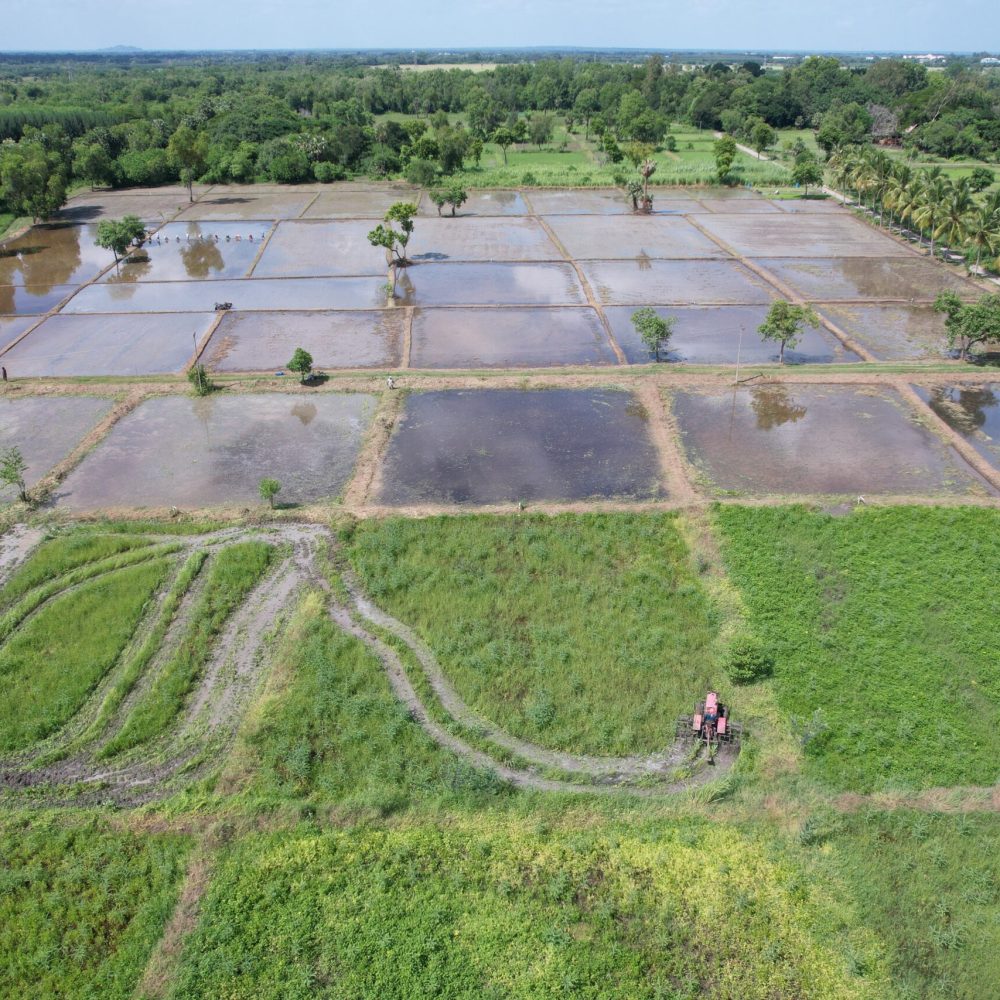
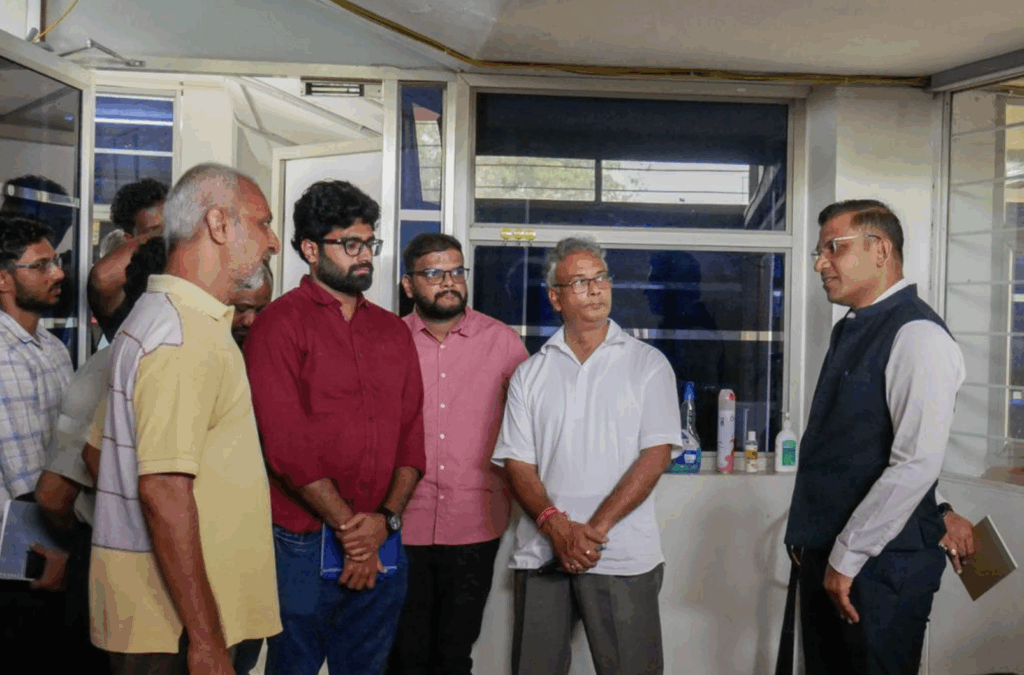
Environmental Destruction flouts the law
Environmental destruction escalated under AVFO authority, from the illegal cutting of protected species to unauthorised soil transport across state lines, prompting criminal charges against employees of the AVFO. In addition, this period has seen unprecedented losses of valuable Auroville land in opaque and highly questionable land exchanges and administrative negligence.
Illegal activities escalate
Following a series of escalating environmental violations under AVFO authority, AVFO workers cut two mature Red Sanders, a protected tree species, without following mandatory state guidelines. Residents’ intervention led Tamil Nadu Forest Department officials to confiscate the timber and promise to lay criminal charges — the status of which remains unknown.
In June 2025, residents intercepted unauthorised soil transfers from the Matrimandir site to private land linked to major donor Michael Bonke, an act that violated Indian law and prompted the intervention of the Tehsildar, a sub-district level government official.
Despite clear warnings and multiple complaints, AVFO activities remained largely unchecked by external authorities.
Land losses
In spite of significant community opposition, controversial land deals continued, with the Governing Board approving exchanges of highly valuable Auroville land for scattered land parcels of lower value in the Greenbelt and outside the master plan.
In one recent example, 7.5 acres of Eternity land — a well-established beach community with main road access, valued at over 114 crore rupees — was proposed for exchange for 7.3 acres of scattered land parcels worth only 15 crore rupees — would resulting in a loss of over 99 crore rupees (approximately US$11 million) to Auroville. The land shark who will benefit from this exchange is the same private owner who took over 10 acres of AuroOrchard land, exchanged in 2023 at a similar massive financial loss to Auroville.
Several parcels in the announced exchanges were mis-identified, already belong to Auroville, or do not exist, suggesting unprofessional management, possible corruption, and lack of historic knowledge by AVFO staff and appointees.
The Working Committee of the Residents’ Assembly estimates the earlier land exchanges have caused losses of over 240 crore rupees (approximately US$28 million) to Auroville. Land parcels have effectively been given away at 1% of market value, raising serious questions about undisclosed motives and major financial irregularities. The pattern of deal-making appears to benefit specific politically-affiliated families and individuals — sometimes behind ‘front men’ — while the details and relationships are kept opaque.
Other communities recently targeted include Djaima, Auro Annam, and Felicity. In response to these threats, concerned Indian Aurovilians called a series of community meetings to stop the new land exchanges and called for immediate intervention from the Tamil Nadu government.
In January 2025, Discipline community lost 2.5 acres of forested land, cared for and protected by Aurovilian foresters for over 40 years, after the AVFO failed to appeal an erroneous court order and the private claimant took forceful possession. This echoes the ongoing Evergreen land dispute, where valuable Auroville land has been inadequately defended — physically and legally — by the AVFO, effectively gifting ownership of the lands in question to individuals with dubious agendas.
Similarly, AuroOrchard farm continues to suffer the impacts of the 2023 land exchanges, including the work of physically relocating the stewards’ house, a major technical accomplishment mahde possible through community expertise and support. The AVFO gave no financial compensation for this relocation or any other losses incurred.

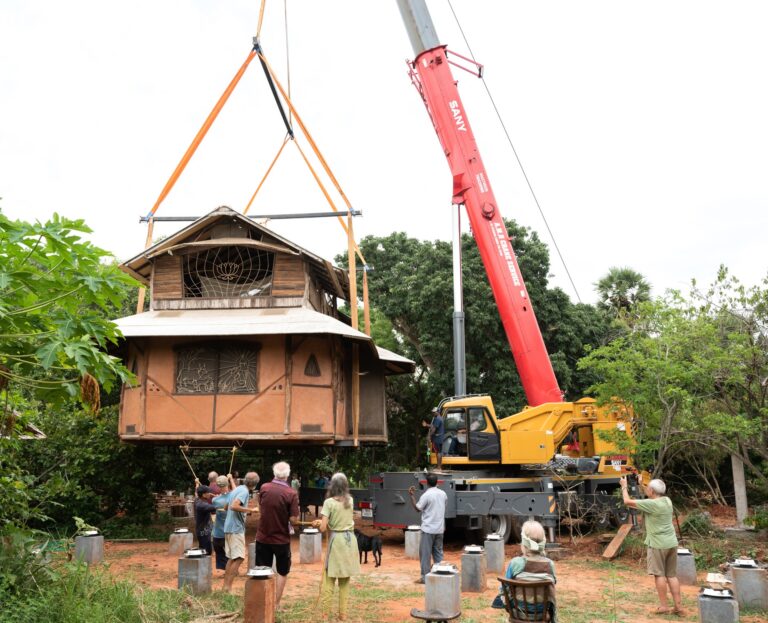
Financial Control and Economic Transformation
Residents faced increased financial burdens as the AVFO implemented systematic changes to centralise all economic activity, reduced transparency, and called for a third party financial audit of Auroville’s Financial Services.
Overhaul of accounting system eliminates community autonomy
The AVFO mandated that all Auroville businesses and service trusts use only Foundation-approved outside chartered accountants and transition to a centralised accounting software. At great expense to Auroville, the Governing Board appointed outside companies for “accounting and allied services”, citing unsubstantiated concerns about professional qualifications and statutory compliance within Auroville.
Long-standing and trusted Auroville internal accounting units — Mukti, Omega and Abacus — were suddenly told to close and have come to a standstill, with more than 40 local staff suffering the consequences. External Chennai-based firms now manage audits and the consolidation of accounts; all accounting work has been centralised in the Town Hall premises and is now handled by inexperienced non-resident staff.
This centralisation stripped units of the autonomy of choosing their own accountants, and extended AVFO control further into the community’s economic life. The abrupt replacement of experienced local accountants with expensive, external chartered accountants unfamiliar with Auroville’s aims, realities and unique economic system has resulted in significant confusion and financial management problems, highlighting the risk of top-down control applied with little forethought.
Financial Service operations transferred to external banks
In a further attempt to centralise financial authority, the Governing Board directed that Auroville’s Financial Service operations be moved to external Indian banks, undermining a decades-old, unique, and carefully nurtured community economic model. All Auroville entities were directed to create sub-accounts consolidated in an external bank account and managed by the AVFO’s finance committee. Even though business executives and trustees maintain some control over their individual sub-accounts, oversight and overall control of the main account remains in the hands of AVFO-appointed committee members.
Residents were given only a few days’ notice to open bank accounts to receive parts of their monthly stipend and were instructed to keep their Auroville Financial Service account balances below 40,000 rupees, compelling them to place any funds over that amount in Indian bank accounts. In recent years, several residents with expired visas have had their Indian bank accounts frozen while waiting for their Letters of Recommendation from the Secretary, leaving them unable to access their funds. This new measure adds another layer of AVFO oversight and control over foreign residents.
Opaque decision-making increases resident’s burdens
AVFO financial decisions remain opaque, excluding residents from decisions that affect their economic well-being, while holding them accountable for the costs. At its July 2025 meeting, the Governing Board approved major construction projects, including the Line of Progress — a 1,000-bed residential complex to house 380 individuals in the Residential Zone — and a 100-bed facility for long-term volunteers and newcomers.
These capital projects, along with the Board’s planned 132.1 crore rupees housing loan for housing development to be repaid by future residents, appear to leave the community bearing the financial burden despite having no role in the decisions.
In another example, small guest house managers were notified by the Governing Board’s appointees that their guesthouses were effectively being taken over or would be closed. Managers were directed to cancel any future bookings so that the premises could be used exclusively by volunteers, and were notified that their accounts would be closed by 15th June 2025. They were given no information about compensation for their personal investments in the unit or future loss of income.
The Governing Board also approved new Deputy Secretary positions with salaries up to ten times the stipend received by Aurovilians. Communications by the Governing Board and AVFO indicate an expectation that the Foundation staff and their families are to be financially supported, housed and schooled in Auroville at the community’s expense, even while these same authorities deny the community’s own resources to lifelong residents.


Controlling Communications
The AVFO intensified efforts to control internal communications, community gatherings, and even internet services, while launching public relations campaigns seemingly designed to improve its image through disinformation.
Assembly restrictions and controlling information
The AVFO issued warnings against “unauthorised gatherings”, effectively censuring meetings organised by residents as well as those organised by the Working Committee of the Residents’ Assembly and other elected working groups, and restricting individuals’ basic democratic rights to assembly and free speech.
In an attempt to exert control over online communications, Aurinoco, the AVFO-aligned internet provider, terminated government-operated internet service provider BSNL’s access to the fiber optic network, doubling costs for users, compromising net neutrality and eliminating an individuals’ right to choose their service provider.
This monopolistic control of internet infrastructure allows the AVFO-aligned Aurinoco to potentially restrict access for dissenting voices or monitor residents’ online activities without oversight. The violation of digital freedom principles generated significant community opposition, with residents calling on authorities to instruct Aurinoco to restore net neutrality and include resident representation in further management decisions. The management team of Aurinoco was subsequently changed.
Public relations campaigns distort facts
The AVFO continued to announce public meetings with residents, aimed more at positive media coverage than genuine consultation.
The Foundation’s newsletter “Auroville Tomorrow”, along with AVFO-run outlets such as Auroville Connect and AWARE, appropriate Auroville’s identity and achievements while misrepresenting residents’ concerns. These publications portray controversial AVFO actions as ‘progress’, and disseminate misleading information (such as distorted figures about Annapurna Farm in order to justify its lease to IIT Madras) in an attempt to legitimise the AVFO’s narratives while censoring resident-led factual reporting of affairs.
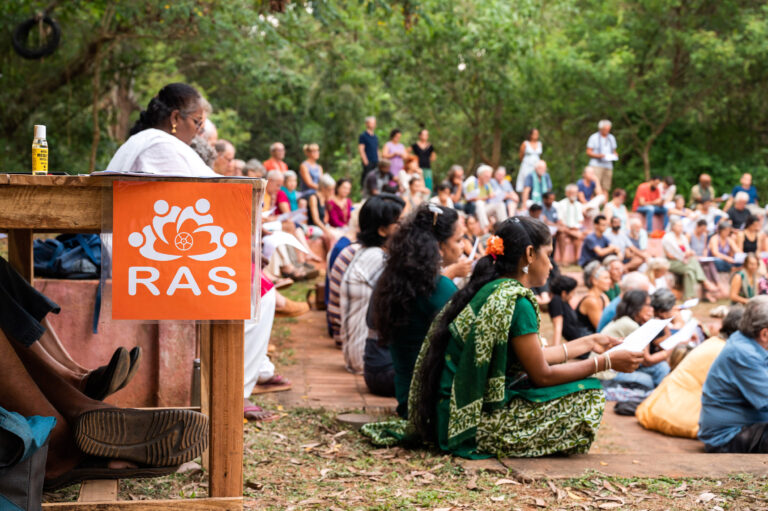
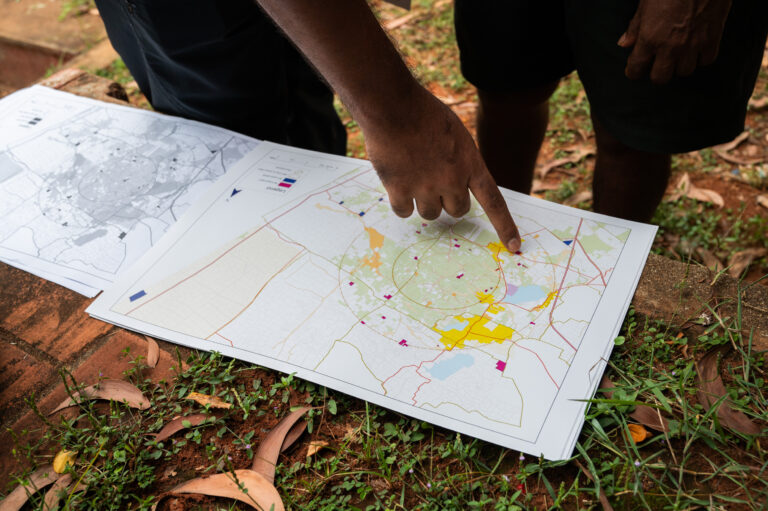
Community Resistance and Resilience
Despite mounting pressure and legal setbacks, the community sustained organised resistance through formal decision-making processes, petitions, and documentation of violations, achieving significant success along the way. Support from wellwishers worldwide complemented our local efforts.
For over three years now, residents have maintained a continuous 24/7 vigil in the Town Hall Council room to preserve the only remaining official meeting space for Residents’ Assembly working groups.
International support and documentation initiatives
In May 2025, the Auroville Global Fellowship, a group of non-resident Auroville wellwishers, launched a website at aurovilleglobalfellowship.org as part of its mission to support Auroville residents. The website features the January 2025 report “Auroville in Crisis & the Way Forward” and the Auroville Witness biweekly newsletter which presents first-person accounts from residents and friends of Auroville to preserve and share testimonies that might otherwise be lost or suppressed.
In August 2025, a group of anonymous, non-resident “scholars, observers, and witnesses” launched a new Substack channel named ‘Auro Innominata’ to provide scholarly reflections on the crisis, broadening global awareness. Their first publication, ‘The Virtue of Integrity in Times of Crisis: Lessons from Auroville’s Crucible’, added a new perspective to the ongoing discourse about the current crisis.
Formal decision-making processes yield strong community unity
In a clear demonstration of residents’ commitment to upholding their right and responsibility to participate in shaping Auroville’s future, two formal decisions were passed.
Following the Supreme Court ruling that asserted the Residents’ Assembly’s right, as per the Auroville Foundation Act, to appoint its own committees, the residents formally recognised eleven resident-elected working groups and committees. With 598 valid votes, residents further asserted their statutory right to advise the Governing Board via their own working group representatives.
In a subsequent vote, 98.6% of 510 residents rejected AVFO-created committees as illegitimately constituted, such as the ‘Admissions and Terminations Scrutinizing Committee’ and the ‘Human Resource Services’, and also rejected the validity of the AVFO’s restrictive ‘Residence Criteria’, created and approved without consultation with the Residents’ Assembly or its legitimate representatives. Unsurprisingly, the AVFO-created committees are all run by the same handful of members who are loyal to the current administration, and with no other community representation.
Community calls for solidarity and support
The Working Committee of the Residents’ Assembly issued an open letter in July 2025, expressing deep concern over threats to Auroville’s social fabric, and the disregard shown by AVFO towards the community’s well-being and livelihood. The letter urged community members to offer mutual support through small gestures of care. Many community members subsequently responded directly to the Working Committee in a broad show of support.
Creative richness abounds despite oppression
Despite systematic budget cuts and mounting institutional pressures, a deep commitment to preserving Auroville’s cultural dynamism remains.
Weekly programs and events continue on nominal budgets and volunteer efforts: in February 2025, the Auroville Choir performed a concert called Hope; in April 2025, a second forest art exhibition was put on by community artists; and in May 2025, artist Birgitta Volz’s exhibition Moribund transformed felled tree trunks into artworks showcasing painful environmental loss and a disregard for community values. “The embrace of corruption and the erosion of its founding principles threaten the very essence of this extraordinary community,” said the artist.
Each effort was a celebration of the community’s commitment to beauty, resilience and cultural vibrancy despite sustained oppression.
Annapurna Farm defense mobilisation
The threat to Annapurna Farm generated unprecedented mobilisation from the global Auroville community, including a Change.org petition with over 15,000 signatures, and various media and advocacy materials including a press release from the Working Committee of the Residents’ Assembly and letters of concern from the members of the International Advisory Council and Auroville International Board. More details can be found at annapurnafarm-auroville.org.in.
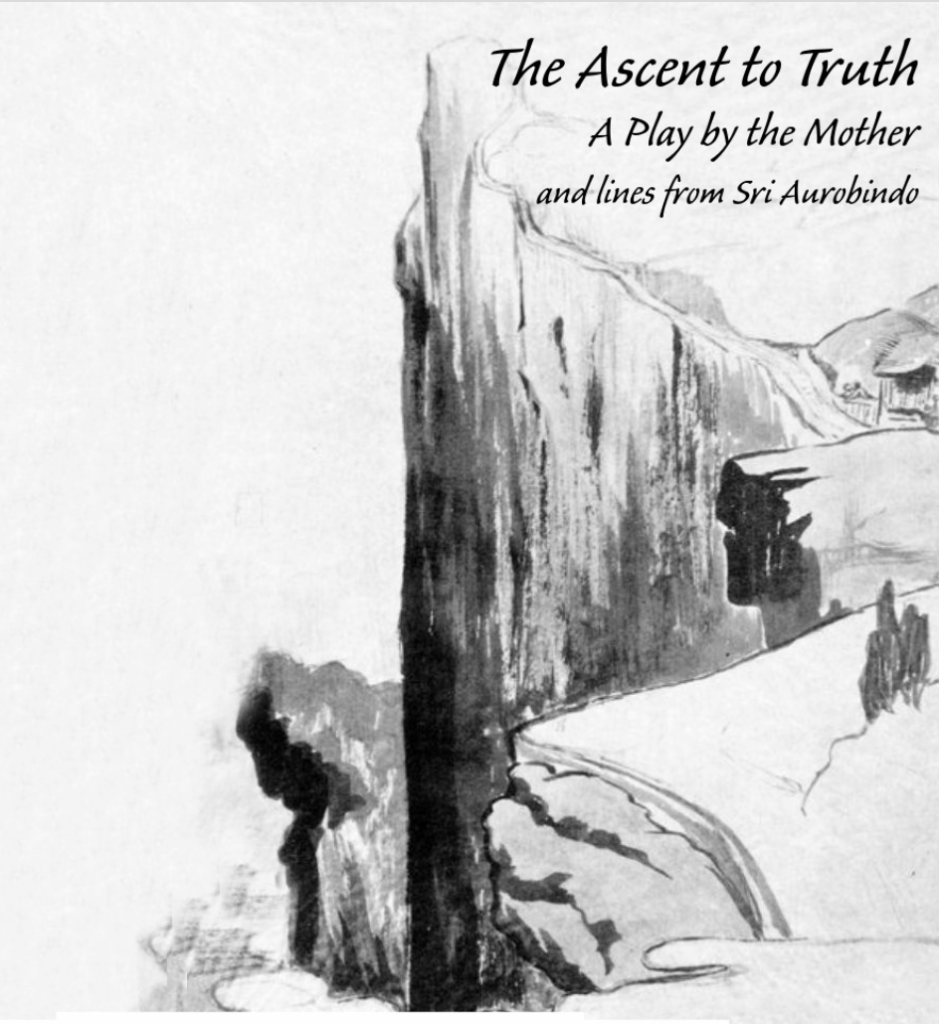
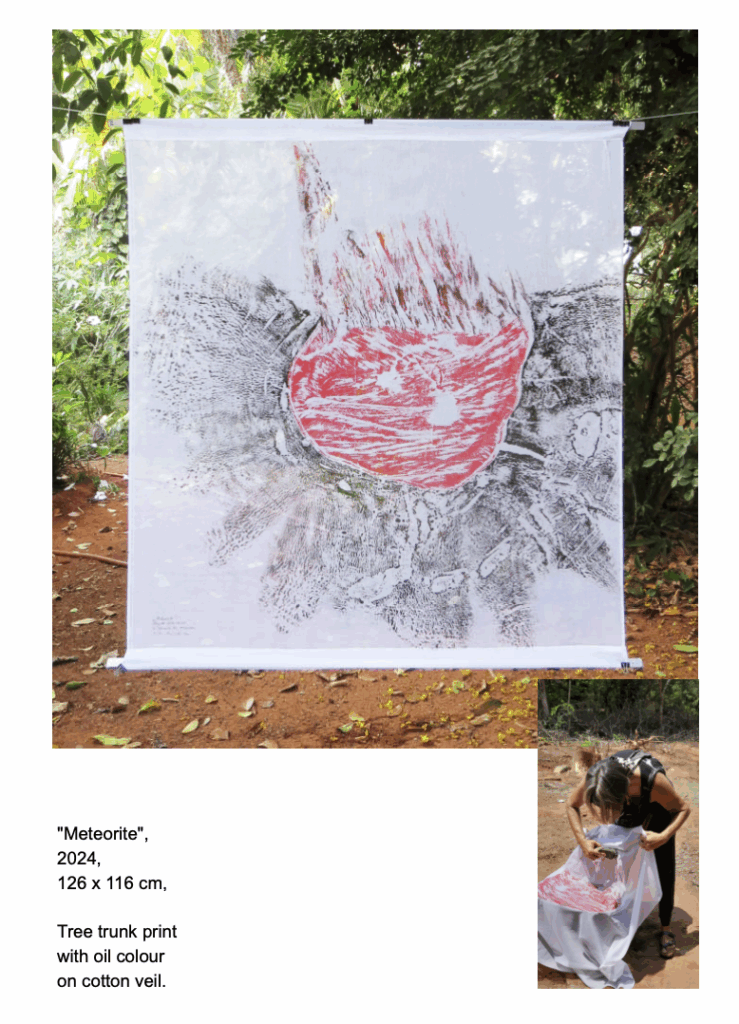
Looking Ahead
In summary, Auroville faced unprecedented challenges throughout March to September 2025: the consolidation of authoritarian control through judicial backing; plans for paramilitary deployment; and institutional appropriation. The AVFO’s systematic dismantling of collaborative governance and resident autonomy threatens Auroville’s commitments to sustainable living and human unity.
The crisis in Auroville mirrors a global pattern of democratic erosion, where centralised authorities diminish citizens’ rights and suppress dissent through legal and coercive means.
The community’s overwhelming opposition to the AVFO’s appointment of its own committees, effective community mobilisations and notable victories, such as Frederick’s visa success, show that organised resistance can achieve results. However, the scale of the AVFO’s proposed institutional changes — from constitutional amendments to approval of paramilitary deployment — suggests that external support and intervention will be essential to preserve Auroville’s founding vision.
Alongside community resistance, the support of well-wishers worldwide becomes more crucial than ever.
You, our valued reader, can play a vital role in supporting Auroville’s residents through this existential crisis. Your awareness, advocacy, and active support make a real difference in preserving this remarkable experiment for future generations. To learn more about how you can help protect Auroville’s vision and support its community, please refer to the section “Comment aider ?” on the last page of this issue.
Extrait de La voix d'Auroville, Issue 09, October 2025
